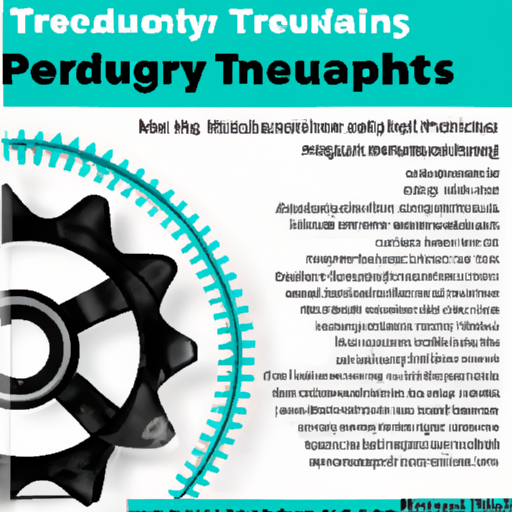Consumer Trends In Malaysia
Are you curious about the latest consumer trends in Malaysia? Wondering what the people of this vibrant country are currently interested in? Look no further. In this article, we will explore the exciting consumer trends that are shaping the market in Malaysia. From the rise of e-commerce to the growing preference for sustainable products, you’ll discover the key insights into what Malaysians are buying and why. So, grab a cup of tea and get ready to dive into the fascinating world of consumer trends in Malaysia.

Table of Contents
E-commerce
Growth of online shopping
The rapid growth of online shopping in Malaysia has transformed the retail landscape. More and more people are turning to the convenience of shopping online, where they can browse a wide variety of products and make purchases without leaving the comfort of their homes. This trend has been driven by factors such as increased internet penetration, improved access to mobile devices, and the availability of secure online payment methods. As a result, e-commerce has become an integral part of consumers’ lives and is expected to continue its upward trajectory in the coming years.
Increasing popularity of mobile shopping apps
With the increasing usage of mobile devices, mobile shopping apps have gained significant popularity among Malaysian consumers. These apps allow users to easily browse products, compare prices, and make purchases with just a few taps on their smartphones. The convenience and accessibility of mobile shopping apps have made them a preferred choice for many consumers, especially the younger generation who are constantly on the go. Retailers and e-commerce platforms have recognized this shift in consumer behavior and are investing heavily in developing and optimizing their mobile apps to capture a larger share of the market.
Preference for local e-commerce platforms
While international e-commerce giants have a strong presence in Malaysia, there has been a noticeable preference among consumers for local e-commerce platforms. Malaysians value the familiarity and reliability of local brands, and often choose to support them over international counterparts. Local e-commerce platforms also offer a better understanding of the local market, with tailored product offerings and promotions that resonate with Malaysian consumers. This preference for local e-commerce platforms reflects a sense of national pride and a growing appreciation for homegrown businesses.
Rise of social commerce
Social media has become an integral part of everyday life for Malaysians, and its influence on consumer behavior cannot be ignored. Social commerce, which refers to the buying and selling of products through social media platforms, has seen a significant rise in Malaysia. Social media influencers play a key role in promoting products and influencing purchase decisions, as consumers trust their recommendations and testimonials. This trend has led to the emergence of online marketplaces within social media platforms, where consumers can directly purchase products from their favorite influencers. The rise of social commerce has created new opportunities for businesses to reach and engage with their target audience, further blurring the lines between social media and e-commerce.
Digital Payments
Adoption of digital wallets
The adoption of digital wallets has been on the rise in Malaysia, as consumers embrace the convenience and security that they offer. Digital wallets allow users to store their payment information securely on their smartphones and make fast and easy payments with just a tap or a scan. This eliminates the need to carry physical cash or credit cards, making transactions more seamless and hassle-free. Popular digital wallet providers such as Grab and Touch ‘n Go have become household names, and their widespread acceptance has made digital payments a mainstream choice for Malaysians.
Increased usage of contactless payments
Contactless payments have gained popularity in Malaysia, particularly in light of the COVID-19 pandemic. The fear of physical contact and the need for hygiene precautions have led to an increased preference for contactless payment methods, such as debit and credit cards with Near Field Communication (NFC) technology. This allows consumers to simply tap their cards on payment terminals to complete transactions, without the need for physical contact or the insertion of cards into machines. As consumers continue to prioritize safety and hygiene, the usage of contactless payments is expected to further increase in the future.
Integration of e-wallets with popular apps
To enhance the convenience and usability of digital wallets, many popular apps in Malaysia have integrated e-wallet functionalities. For example, ride-hailing apps like Grab and food delivery apps like Foodpanda and GrabFood allow users to make seamless payments using their e-wallet balances. This integration reduces the need for multiple payment methods and provides users with a single platform for various transactions. As a result, more and more Malaysians are embracing these integrated apps, further driving the adoption of digital payments.
Growing acceptance of cryptocurrency
Cryptocurrency has gained traction in Malaysia, with increasing acceptance and usage among consumers. As a decentralized digital currency, cryptocurrency offers advantages such as lower transaction fees, faster cross-border transactions, and enhanced privacy. Merchants in Malaysia are gradually accepting cryptocurrency as a mode of payment, recognizing the potential benefits it brings in terms of financial inclusivity and efficiency. While the adoption of cryptocurrency is still in its early stages, its growing acceptance reflects an evolving consumer mindset and the desire for more innovative and secure payment options.
Changing Retail Landscape
Shift towards experiential retail
In an effort to attract and retain customers, retailers in Malaysia are shifting towards experiential retail. Traditional brick-and-mortar stores are transforming into immersive spaces that offer unique experiences beyond just shopping. For example, fashion retailers are creating interactive fitting rooms with virtual mirrors and personalized styling recommendations, while technology stores are providing hands-on experiences with virtual reality and augmented reality. By providing memorable experiences, retailers aim to create a deeper connection with consumers and differentiate themselves in a highly competitive market.
Rise of pop-up stores and concept stores
Pop-up stores and concept stores have become popular retail concepts in Malaysia, offering temporary or permanent spaces that showcase curated collections or unique products. These stores create a sense of exclusivity and urgency, as they often feature limited-edition items or collaborations with renowned designers. Pop-up stores also leverage the power of social media and influencers to generate buzz and attract customers. This trend caters to consumers’ desire for novel and one-of-a-kind shopping experiences, while allowing brands to experiment with new concepts and engage with their target audience in innovative ways.
Integration of online and offline shopping experiences
To provide a seamless and holistic shopping experience, retailers are integrating their online and offline channels in Malaysia. This integration allows consumers to browse products online, make purchases, and then choose between home delivery or in-store pickup. In addition, retailers are leveraging technology such as virtual reality and augmented reality to bridge the gap between online and offline shopping. For example, furniture retailers are using virtual reality to enable customers to visualize how products will look in their homes before making a purchase. By integrating online and offline experiences, retailers aim to meet consumers’ evolving expectations and provide a convenient and personalized shopping journey.
Focus on sustainability and ethical practices
Consumers in Malaysia are increasingly conscious of the environmental and social impact of their purchasing decisions. As a result, retailers are placing a strong emphasis on sustainability and ethical practices. This includes sourcing products from eco-friendly and socially responsible suppliers, reducing packaging waste, and supporting fair trade initiatives. Retailers are also transparently communicating their sustainability efforts to consumers, as they recognize that responsible practices can be a strong selling point. The focus on sustainability and ethical practices reflects a shift towards more responsible consumption and the desire to support businesses that align with consumers’ values.
Rise of Health and Wellness
Growing demand for organic and natural products
There is a growing demand for organic and natural products in Malaysia, as consumers prioritize their health and well-being. Malaysians are becoming more conscious of the potential risks associated with synthetic ingredients and are opting for products that are free from harmful chemicals. This trend is evident in various sectors, including food, beauty, and personal care products. Retailers have responded by expanding their offerings of organic and natural products, catering to the increasing demand and providing consumers with healthier alternatives.
Increase in fitness and wellness activities
As Malaysians become more health-conscious, there has been a significant increase in fitness and wellness activities. Gym memberships, yoga studios, and wellness retreats have become popular choices for individuals looking to maintain a healthy lifestyle. This trend is supported by the growing availability of fitness apps, online fitness classes, and wellness workshops. Consumers are embracing these opportunities to prioritize their physical and mental well-being, reflecting a shift towards a more proactive approach to health.
Preference for health-conscious food and beverages
Malaysian consumers are increasingly seeking out health-conscious food and beverages, focusing on nutrition and quality ingredients. There is a growing interest in plant-based diets, vegetarianism, and organic produce. Consumers are also turning to functional foods and beverages that offer added health benefits, such as probiotics and superfoods. This shift in preference is driven by a desire for better overall health and a greater awareness of the link between diet and well-being. Retailers and food manufacturers are responding by expanding their range of healthier options and providing consumers with more choices to support their dietary preferences.
Emphasis on mental health and self-care
The importance of mental health and self-care has gained recognition in Malaysia, sparking a greater emphasis on products and services that promote well-being. Consumers are seeking out products that help them relax, de-stress, and improve their mental well-being. This includes items such as aromatherapy products, meditation apps, and self-help books. Additionally, there has been a rise in wellness retreats and mindfulness workshops that provide individuals with the tools and techniques to prioritize their mental health. This trend reflects a growing awareness of the need to achieve a work-life balance and take care of one’s mental health in a fast-paced and stressful environment.
Smart Technology
Adoption of smart home devices
Smart home devices have gained popularity in Malaysia, as consumers embrace the idea of a more connected and convenient living space. Devices such as smart speakers, smart lighting systems, and smart thermostats offer increased control and automation, allowing users to manage their homes more efficiently. Malaysians are recognizing the potential of smart home devices to improve comfort, energy efficiency, and security. The adoption of these devices is expected to continue growing as consumers become more accustomed to their benefits and as the range of available products expands.
Increased usage of virtual assistants
Virtual assistants, such as Amazon Alexa and Google Assistant, have become a common presence in Malaysian households. These voice-controlled devices offer users the ability to perform various tasks, such as playing music, setting reminders, and controlling smart home devices, with simple voice commands. Malaysians are embracing virtual assistants as they offer convenience and hands-free interaction, simplifying daily routines and enhancing productivity. Virtual assistants are also becoming increasingly integrated with other smart devices, such as smartphones and smart TVs, further enhancing their usefulness.
Integration of AI and IoT technologies
The integration of artificial intelligence (AI) and the Internet of Things (IoT) technologies has paved the way for innovative applications in Malaysia. AI-powered chatbots are being used by businesses to provide personalized assistance and improve customer service. IoT devices, such as wearable fitness trackers and smartwatches, are becoming popular tools for individuals to monitor their health and fitness. The combination of AI and IoT technologies is enabling a more connected and intelligent ecosystem, offering Malaysians a range of smart solutions that enhance their daily lives.
Emergence of smart vehicles
Smart vehicles, including electric cars and autonomous vehicles, are emerging as a trend in Malaysia. Increasing concerns about climate change and air pollution have led to a growing interest in electric vehicles (EVs) among environmentally conscious consumers. Additionally, the advancement of self-driving technology has sparked curiosity and excitement, with Malaysians looking forward to the day when autonomous vehicles become a reality. Although the adoption of smart vehicles is still in its early stages, the potential for a cleaner and safer transportation system is driving interest and investment in this area.
Changing Food Consumption Patterns
Increasing preference for plant-based and vegetarian diets
Plant-based and vegetarian diets have gained popularity in Malaysia, as consumers become more conscious of the health and environmental benefits of reducing meat consumption. Malaysians are embracing plant-based alternatives and vegetarian options, with an increasing number of restaurants and cafes offering dedicated menus to cater to this demand. This trend reflects a growing awareness of the impact of food choices on personal health and the environment, as well as a desire to explore diverse culinary experiences.
Demand for premium and specialty food products
There is a growing demand for premium and specialty food products in Malaysia, as consumers seek out unique and high-quality options. This includes gourmet ingredients, artisanal products, and delicacies from different regions and cultures. Malaysians are increasingly willing to pay a premium for products that offer a superior taste or a unique gastronomic experience. Retailers and food manufacturers are capitalizing on this demand by expanding their range of premium and specialty food products, providing consumers with a wider selection to indulge in their culinary passions.
Rise of food delivery services
The rise of food delivery services has revolutionized the food consumption patterns in Malaysia. Malaysians are increasingly relying on food delivery platforms, such as GrabFood and Foodpanda, to satisfy their cravings and enjoy restaurant-quality meals at home. This trend has been accelerated by the COVID-19 pandemic, which has limited dine-in options and prompted consumers to explore alternative ways of enjoying their favorite foods. Food delivery services have not only provided convenience but have also created new opportunities for smaller food establishments to reach a wider audience and grow their businesses.
Growing popularity of food subscription services
Food subscription services, where consumers receive curated boxes of ingredients or ready-to-cook meals on a regular basis, have gained popularity in Malaysia. These services offer convenience, variety, and the opportunity to try new recipes and flavors without the hassle of grocery shopping and meal planning. By providing pre-portioned ingredients and easy-to-follow recipes, food subscription services cater to busy individuals who still want to enjoy home-cooked meals. This trend reflects a desire for convenience and culinary exploration, as well as a shift towards more time-efficient and lifestyle-friendly food options.
Sustainability and Ethical Consumerism
Preference for eco-friendly and sustainable products
Malaysian consumers are showing a growing preference for eco-friendly and sustainable products, driven by concerns about environmental sustainability. These products are characterized by their use of renewable resources, biodegradable materials, and eco-friendly production processes. Malaysians are becoming more conscious of their carbon footprint and actively seek out products that minimize harm to the environment. Retailers are responding by offering a wider range of sustainable options, ensuring that consumers have access to eco-friendly choices across various product categories.
Interest in fair trade and ethically sourced products
Consumers in Malaysia are increasingly interested in fair trade and ethically sourced products, recognizing the importance of supporting workers and communities involved in the production process. They seek assurance that the products they purchase are made under fair working conditions and that the producers receive a fair wage. This interest is particularly evident in sectors such as coffee, chocolate, and clothing, where fair trade certifications and transparent supply chains play a crucial role in purchasing decisions. Retailers are partnering with fair trade organizations and working towards greater transparency to meet the growing demand for ethically sourced products.
Support for local and artisanal brands
There is a strong support for local and artisanal brands in Malaysia, as consumers appreciate their unique and authentic offerings. Malaysians value the craftsmanship, cultural heritage, and local economic impact of supporting homegrown brands. In response, local artisans and entrepreneurs are emerging in various sectors, including fashion, home decor, and food. Initiatives such as pop-up markets and online platforms that promote local brands are gaining traction, providing consumers with access to a wide range of high-quality and locally made products.
Growth of the second-hand and vintage market
The second-hand and vintage market has experienced significant growth in Malaysia, as consumers embrace circular fashion and sustainable consumption practices. Malaysians are increasingly finding value in pre-loved items, recognizing their affordability, uniqueness, and reduced environmental impact. Online platforms dedicated to buying and selling second-hand goods have gained popularity, offering consumers a convenient and reliable way to participate in the circular economy. The growth of the second-hand market reflects a shift towards more conscious and responsible consumption, as Malaysians seek to reduce waste and extend the lifespan of products.
Influence of Social Media
Impact of influencer marketing
Influencer marketing has become a powerful tool in Malaysia, as consumers increasingly rely on social media influencers to guide their purchasing decisions. Influencers, who have built a dedicated following on platforms such as Instagram and YouTube, collaborate with brands to promote products and services to their audience. Malaysians trust influencers’ opinions and recommendations, considering them to be reliable sources of information and inspiration. This trend has led to a surge in influencer collaborations, where brands tap into the reach and influence of popular social media personalities to create awareness and drive sales.
Rise of user-generated content
User-generated content has gained prominence in Malaysia, with consumers actively sharing their experiences and opinions on social media. Malaysians enjoy sharing their review about products they have used, their travel experiences, and their food adventures. Brands are leveraging this trend by encouraging consumers to create user-generated content related to their products or services. This not only generates authentic content that resonates with other consumers but also fosters a sense of community and engagement. User-generated content has become a powerful marketing tool, amplifying brand messages and building trust among consumers.
Growing role of social media in purchase decisions
Social media platforms have become an integral part of the purchase decision-making process in Malaysia. Consumers rely on social media to discover new products, research their options, and seek recommendations and reviews from their peers. The visual nature of platforms like Instagram and Pinterest allows consumers to see products in action and envision how they would fit into their own lives. Brands are recognizing the influence of social media and are investing in social media marketing strategies to engage with their target audience effectively.
Expansion of social commerce
Social commerce, the integration of e-commerce and social media, is expanding rapidly in Malaysia. Social media platforms are increasingly becoming a marketplace where consumers can discover, browse, and purchase products without leaving the platform. Malaysians are embracing the convenience of social commerce, as it allows them to make purchases directly from their favorite influencers or brands they follow on social media. Retailers are leveraging the power of social media platforms to reach their target audience and tap into the growing trend of seamless shopping experiences.
Changing Travel Habits
Preference for experiential and off-the-beaten-path travel
Malaysian travelers are showing a preference for experiential and off-the-beaten-path travel, seeking unique and authentic experiences rather than traditional tourist hotspots. They are increasingly drawn to destinations that offer cultural immersion, natural beauty, and opportunities for adventure. This trend reflects a desire for meaningful travel experiences, where travelers can connect with local communities, learn about different cultures, and make lasting memories. Travel providers are responding to this demand by offering curated experiences and personalized itineraries that cater to the growing desire for immersive and authentic travel.
Growing interest in eco-tourism and sustainable travel
Eco-tourism and sustainable travel have gained significant traction in Malaysia, as travelers become more aware of the environmental impact of tourism. Malaysians are showing a greater appreciation for nature and are seeking destinations that prioritize conservation, responsible tourism practices, and support local communities. Eco-lodges and sustainable tour operators are emerging, offering travelers the opportunity to explore pristine environments while making a positive impact. This shift towards sustainable travel reflects a growing sense of environmental responsibility and the desire to preserve natural wonders for future generations.
Increase in domestic travel
As international travel restrictions continue to fluctuate, Malaysians are increasingly turning to domestic travel to satisfy their wanderlust. This has led to a resurgence in interest in local destinations, as travelers rediscover the beauty and diversity of their own country. From lush rainforests and pristine beaches to vibrant cities and cultural heritage sites, Malaysia offers a wide range of experiences that cater to different interests and preferences. The increase in domestic travel has also led to the growth of niche tourism offerings, such as culinary tours, heritage walks, and adventure tourism.
Shift towards personalized travel experiences
Travelers in Malaysia are seeking more personalized and tailor-made travel experiences, as they look to create unique memories that reflect their individual preferences and interests. They are turning to travel agents and tour operators who can curate itineraries and experiences based on their specific needs and desires. From wellness retreats and culinary tours to adventure travel and cultural immersions, travelers are demanding more than just cookie-cutter packages. This trend underscores a desire for deeper engagement and meaningful connections with the destinations they visit.
Shift in Consumer Demographics
Increase in urbanization and middle-class population
Malaysia is experiencing rapid urbanization, with more people moving to cities in search of better employment opportunities and a higher standard of living. This shift in demographics has led to an increase in the middle-class population, who have greater purchasing power and a desire for improved lifestyles. The rise of the middle class has fueled consumer spending in various sectors, from housing and automobiles to travel and luxury goods. Businesses are recognizing the potential of this growing demographic and are tailoring their products and services to cater to their needs and aspirations.
Changing lifestyle preferences of millennials and Gen Z
Millennials and Gen Z consumers are driving significant changes in consumer trends in Malaysia. These younger generations have distinct lifestyle preferences and values compared to previous generations. They prioritize experiences over possessions, value sustainability and ethical practices, and are early adopters of new technologies. This has influenced their consumption patterns, including their choices in food, fashion, travel, and entertainment. Businesses are adapting to these changing preferences by offering more sustainable and experiential options, adopting digital marketing strategies, and creating products and services that resonate with the younger generations.
Rise of the silver market
Malaysia’s aging population presents a new consumer market known as the silver market. The elderly population, aged 60 and above, is growing steadily, and this demographic represents a significant consumer segment. The silver market has unique preferences and needs, requiring products and services that cater to their health, well-being, and leisure activities. From healthcare and retirement communities to travel and lifestyle products, businesses are recognizing the potential of the silver market and are adapting their offerings to meet the evolving demands of this demographic.
Emergence of female consumers as key decision-makers
Female consumers in Malaysia are increasingly taking on key decision-making roles in households, influencing purchasing decisions across various sectors. Women are actively involved in financial management, purchasing decisions for the family, and career advancement. This shift is driven by higher education levels, increased workforce participation, and changing social dynamics. Businesses are recognizing the importance of appealing to female consumers and are developing products and marketing strategies that resonate with their needs and aspirations. This includes creating gender-neutral products, promoting diversity and inclusivity, and featuring women in leadership positions in their campaigns.





